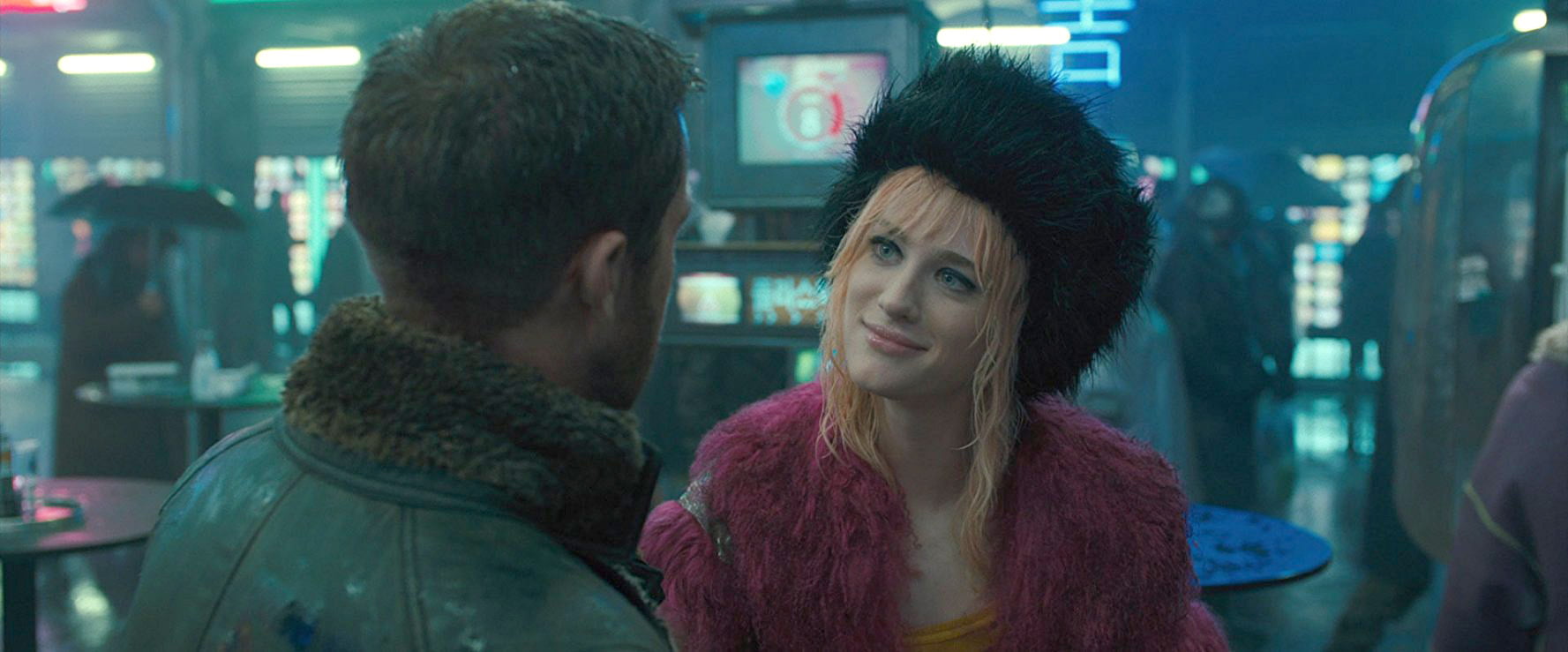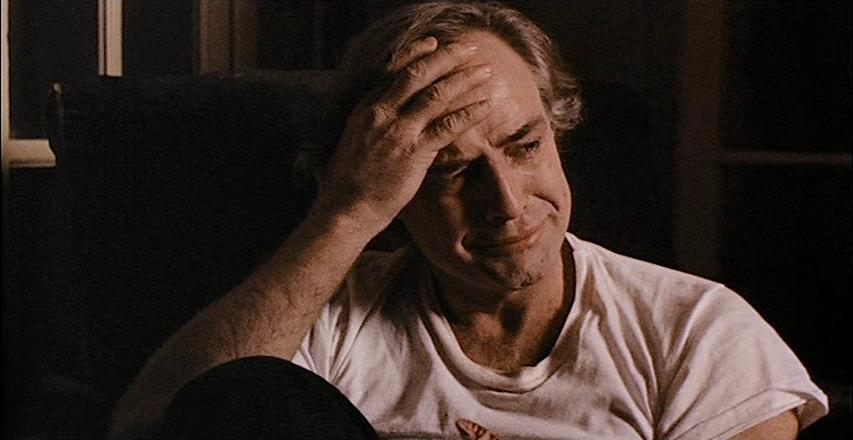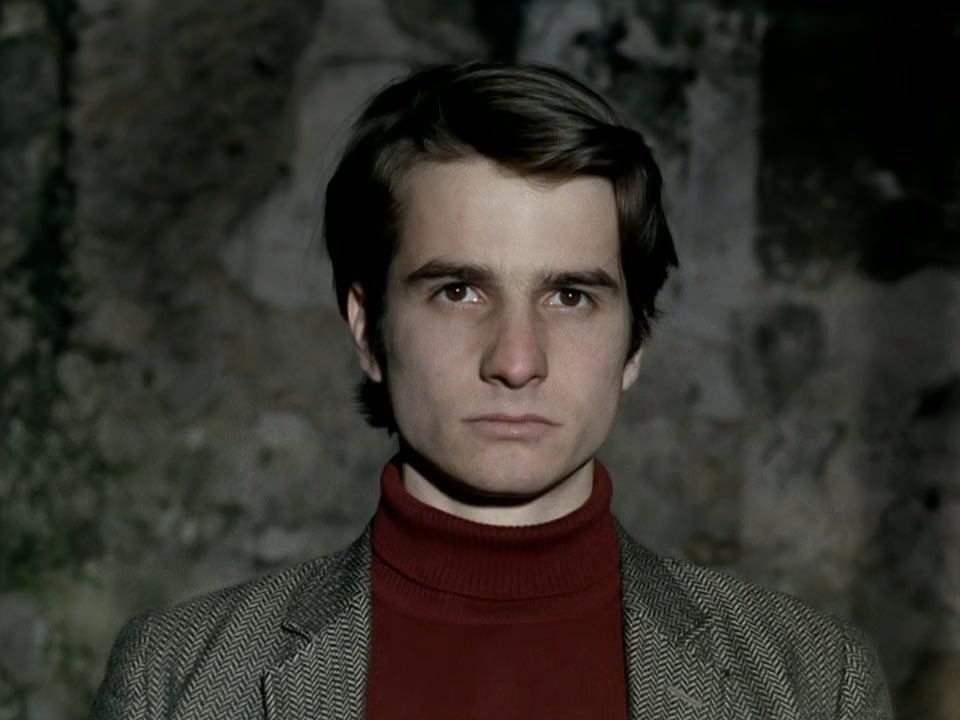
By Emad El-Din Aysha, PhD
“With most people, not describable as artists, all the finer part of their vitality goes into sex. They become third-rate poets during their courtship. All their instincts of drama come out freshly with their wives. The artist is he in whom this emotionality normally absorbed by sex is so strong that it claims a newer and more exclusive field of deployment. Its first creation is the Artist himself, a new sort of person; the creative man.”
--- Wyndham Lewis
Time for another follow-up, or set of follow-ups, after making the damnable mistake of watching Bernardo Bertolucci’s degenerate masterpiece Last Tango in Paris (1972), and in the middle of the night too. When will I ever learn?!
Let me just preface this by saying that I believe in controversial works of art that pose dilemmas and explore uncharted terrain and push the fold. They’re a boon to our understanding of ourselves as human beings and fill critical gaps in our knowledge; they’re food for thought, refine our notions, enrich our set of experiences and are a boon for social science and psychoanalysis and even religion. That’s the classic free speech defence which I do in fact subscribe to, and I’d certainly say that about another gender-bending controversial work I watched late at night – “San Junipero” from Season 3, Episode 4 of the Black Mirror series (see below) – and that’s despite my religious misgivings there. Still, it was a breath of fresh air compared to Last Tango in Paris. Just remember that arguments about freedom of expression when it comes to works of art presume by necessity that they rate as works of art, and not cheap and self-indulgent propaganda.
When we took aesthetics at university one of the first questions they posed was ‘but is it art’. That is, how do you tell the difference between a work of art and a mere artefact, something like a hammer or a TV set, let alone a vase? The standard answer is that a hammer or a TV set is a mere tool, something that serves a practical function and nothing more.
By extension, then, a commercial, an advert, wouldn’t rate as a work of art, even if it utilised drama and cinematography and music to great effect because the sole objective is to get somebody to buy something. That’s the bottom line. Banning art may be wrong, except in the most extreme of circumstances, but banning an advert is perfectly okay.[1] It doesn’t rate as art or even expression of opinion. Same goes, of course, for a political party broadcast because it has a narrow practical function. It’s there to get you to do something, not to ‘explore’ something; a theme, an issue, and help you make your own mind up about it regardless of the preconceived views of the artist. Real art is about challenging preconceived views, including those of the artist. If you force characters to do what you want them to do, behave unnaturally, you’re a bad and dishonest artist. They have to make their minds up based on their beliefs and personality and background and they can’t be allowed to become mere mouthpieces for or puppets in the hands of the artist.
You felt this was what was going on in Last Tango, and I’m glad to say I could catch on to it. Not for any terribly cool, critically analytic reasons but because – as a Mediterranean dude – you can recognise many of the hints and imagery and stereotypes being deployed to communicate the director-writer’s sordid set of intentions. And not only are they not nice, they’re so bad even I’m offended, as a Mediterranean!
An empire on the rocks
For the sake of being objective let me first praise what is good and commendable in the movie. It’s superbly directed, in terms of cinematography and music and the tipsy narrative feel of it. For all its foibles its better than The Dreamers (2003), with the notable exception of sex goddess-acting queen Eva Green, since that rehash of a movie is too cluttered for its own good. Last Tango is also very well written in terms of dialogue, its’ exceptionally well cast; kudos to the girlish sensation Jeanne (Maria Schneider) with her underaged fleshiness (something many Mediterranean men are into, if they’re peasants). Finally, its’ incredibly well acted by Marlon Brando. When you talk about Brando you’re talking a butch, burly man who is always in control of a situation if not himself and what he feels. Here he’s injured and angry and frustrated and guilt-ridden and downright sensitive and almost naked. I don’t think I’ve ever seen him in a role like this before, even in The Wild One (1953). This was his finest hour, much like poor George Peppard in Breakfast at Tiffany's (1961), and sadly it was downhill for both actors from that point on.
Brando plays the typical dejected American in Paris but with a twist. The Paris you see here isn’t the same as you usually see in cinema, from the French perspective, with young artists and foreigners in love. Instead it feels like downtown New York, noisy and crowded and impersonal and overbearing. He can’t even stand the sound of the trains; the sound of fate and your impending doom, perhaps? It’s almost a precursor to Donald Rumsfeld’s quip about ‘old’ Europe, hence the scenes and reference to old ladies with false teeth. The colours of the city are all wrong too. Instead of an abundance of pasty blues you have an abundance of cold greys, coupled with reds and browns. Bertolucci brings a very Italian sensibility to this Paris, which you can see clearly in a dubbed scene involving an old age prostitute hiding her age with too much makeup – turns out the original actress was Italian (Giovanna Galletti). This, you can see, is the root of the problem with the movie. The director, who also wrote the story, is too busy dealing with his own problems as an Italian man to let the Parisians, or Americans for that matter, speak about themselves. Hence, the vulgar sexual politics of it all. Here’s an annoying hint. When we first encounter Jeanne she’s out on the street and dressed like a flamboyant prostitute, and she sees an advert for a vacant apartment. She goes to the landlord to get the key and you find it’s a woman, a black woman with a thick accent, and she confesses that she may not have the key and that men come and go in that place without even telling her or paying her any mind. Then she gives the girl a duplicate key anyway and almost toys with her, not letting her hand go after handing it over.
The building has the feel of a lunatic asylum with the inmates being in charge. Not that different you later learn from where Marlon Brando’s character originally lives, a hotel he ran for his wife and her family, with lots of pimps and prostitutes and indigents and nobody ultimately in charge and everybody looking the other way provided the guests pay their rent. He describes it as a ‘flophouse’ and his position there as more of a guest than a husband. But there’s more to it than that. If you’re an Egyptian you can recognise this straight away, the ‘وكالة من غير بواب’ syndrome. It’s hard to translate into English but the idea is, do you think you can just come and go as you like without permission or checking with me, do you think there’s no man in the house. You see this when she gets the room and finds Marlon Brando there; he’d bumped into her out on the street, and he creeps his way in without so much as making an announcement. You can imagine what happens next and she doesn’t really resist, for some convenient reason. Later when furniture is being delivered to the apartment you also have Jeanne complains to the delivery men for not knocking or calling. They’re excuse is, as you’d expect, the door was already left unlocked and ajar. (It’s a giant free for all!)

Men derelicting their protective duties is an all too common theme among us Mediterranean types, I’m sad to say. Check out another Bertolucci epic, The Last Emperor (1987), the lesbian scene where the Japanese minister of propaganda in Manchuria is filming the emperor’s wife doing it with a woman collaborator. And the scene where the emperor’s wife confesses to being pregnant, from a Manchurian man, as a gift to her emperor who wants a male heir. And the Japanese insist on punishing the guilty man, a chauffeur it turns out, to preserve the emperor’s ‘honour’. This way of thinking, that a man who can’t run his own house (and keep his women in check) can’t be expected to run a country is as old as Antigone but is actually not true. The English don’t think this way, at least not since Hamlet’s day, and Lloyd George famously couldn’t keep his wife from betraying him but was nonetheless a successful and significant prime minister in British history. There’s something to be said for the public-private distinction after all, despite the complaints of feminists, bemoaning that public matters are kept exclusively to men while women are saddled with the home front.[2] (They should see what happens when it’s the men who insist on confusing them).
In Last Tango there are no men to speak of, real men. Instead they’re pimps, bouncers or ‘clients’. You see this in a key scene where Brando’s character is talking to the dead body of his wife, a woman who betrayed him all the time, and then he has to go to the front door of the hotel to deal with that aforementioned old hag of a prostitute. He even has to go after her client when he chickens out, confessing that he only resorts to prostitutes because his wife is no longer active. Brando beats him up and tells him to be a man. This ties into another Egyptian movie, the lovely Factory Girl by Muhammad Khan, where there are hardly any men anymore and way too many girls and woman are the ones stuck not only providing for themselves but trying to protect their honour and stop their daughters getting seduced by their own weaknesses, searching for a man to save them from their poverty. But, whereas Muhammad Khan did his epic with great sympathy and sensitivity, Bertolucci does it with great vulgarity and insensitivity. Emasculation at the hands of European women is his chief concern, epitomised by the pathetic scene where Brando meets his wife’s former lover only to discover how she insisted that he and her husband both wear identical robes and drink from the same bourbon and live in a bedroom decorated the same way. Even when Brando confronts the dead wife – she committed suicide, for some reason – he eventually breaks down and cries and apologies for yelling at her, even when she’s dead. European women are portrayed as wily and mysterious and unfathomable – Brando pretty much says this as the too literal American – and loose because there’s no men there to keep them ‘in line’. And why is that? The end of empire!
Don’t take my word for it. The movie is positively strewn with post-imperial, emasculation symbols. The pistol Jeanne uses to kill Brando with belongs to her deceased father, an officer who died in Algeria during the war for national independence. And this is despite the fact that the dead dude has a picture of a naked Berber girl who kept him ‘comfort’ during the long, dark years of occupation, away from his legally betrothed sweet heart. This is an indictment of women we know all too well as men, since security matters to them more than romance and fidelity – so why should we be loyal, our argument goes? (And here’s its applied at a national scale, falling in love with vanquished, exotic lands when you’re letdown by the motherland so to speak).
Jeanne loves to wear her father’s uniform and was turned on by the uniform as a kid and her mother likes to keep the gun as well to give her a false sense of security, without a man in the house. Just before Jeanne shoots Brando he puts on her father’s hat, trying to reprise the role of the imperialist, something that tips her over the edge, making her angry at this desecration. Here’s what he says: “It’s a little old... but full of memories, huh? Mademoiselle... How do you like your hero? Over easy or sunny-side up? You ran through Africa and Asia... and Indonesia.” And what does she do, after killing him? In typical dastardly female fashion she rehearses what she’s going to tell the cops, which is that she has no idea who this guy is and that he tried to rape her. I mean, why else is the story called Last ‘Tango’ in Paris? Tango is a Latin American dance but, wouldn’t you know it, the penultimate scene in the movie is in a dance hall with a Tango contest going on. Tango is a very civilised dance where men and women minimise the level of physical contact and it’s always used as a motif for mutual respect, between people and between countries. Brando pretty much says this here: “You know, the tango is a rite. Do you understand ‘rite?’ And you must watch the legs of the dancers.” Not that Brando respects any of this, forcing her to have demeaning sex with him while there, and then taking his trousers off when they boot him out for not respecting the dance rules. (I’ll deal with the buggery scene below because it demands extra analysis).
It’s also in this sequence that Bando advertises himself to Jeanne, his unsuitability as a husband in these hallowed terms: “I picked up a nail when I was in Cuba in 1948... and now I got a prostate like an Idaho potato. But I’m still a good stick man, even if I can’t have any children.” It seems that America was experiencing a little post-imperial funk on account of Vietnam and I presume Cuba is a reference to the Pay of Pigs and American imperialism in Central America – America’s so-called backyard. There’s also the question of the subplot, namely, Jeanne’s relationship with a French movie director (Jean-Pierre Léaud) who wants to make her a star and she inexplicably gets into an argument with him, a slapping match in fact, where she accuses him for forcing her to do things and even raping her. She’s clearly projecting her angst about the American guy onto him and, wouldn’t you know it, he has a distinct look to him – with a nose and hairstyle that makes him a spitting image of the young Bertolucci!
The message then is, Europeans should stay with Europeans because they at the very least can put up with their perversions and let women live as loosely as they want, unlike the blustering Americans – they as men aren’t resigned to not being in control. (Hah!) Brando’s character, commenting on the French director, describes him as a pimp. (American men seem to expect that their women only belong to them. Imagine that? I thought it was just old world Arabic-Muslim guys). As for the fisticuffs scene, you can’t help but notice these giant posters in the subway scene and you get the distinct impression it’s something like a Viagra commercial.
So much for subtlety. Oh, and Bertolucci is wrong. American men feel emasculated themselves and in the bosom of their own motherland. Just watch Laurel and Hardy classic Sons of the Desert and you’ll find men being bossed around by women at home and taking refuge in all-male country clubs, with women going on duck hunting trips. None of which could possibly have happened since this was in 1933 in the heyday of the Great Depression!
Through the reverse keyhole
Now to get to the really sexually perverted stuff, as if the above wasn’t enough. There’s the famous scene where Brando’s character buggers the poor girl, with the aid of butter, and it emerges that this may not have actually been acting and may also not have been consensual.[3] Whatever happened to sexual harassment? Whatever happened to no animals were harmed in the making of this movie?!
This is crude politicking which is recognisable even to the Anglo-American mind. If you’ve read the Watchmen graphic novel, you have a buggery scene there, and if you watch the movie they pretty much tell you that it’s an allusion to screwing the nation. (The same tongue-in-cheek motif is used in Charlie Wilson’s War with the CIA director). I would be okay with that in this movie; the gruff, rough American doing this to the European heartland, if it weren’t for the personalised element that you feel comes from Bertolucci himself. When Brando’s character is arguing with his mother in-law over how to bury his dead wife, he gets angry over having a Catholic burial because he hates the church. Later, when he’s doing it to poor, sweet Jeanne – you do really like her for her forthright performance, and her body and skin – he keeps talking about how the Catholic Church breaks the will of little boys through sodomy. I got the distinct impression, then, that Bertolucci had this done to him as a child. That would explain a peculiar habit in his movies, which is paradoxically his desire to ‘normalise’ the female body, as if it were some alien, reprehensible thing. You see this in The Dreamers, the scene where the three kids are in the bathtub and Eva Green’s character has her periods. (This makes no sense given that Christians, unlike Muslims and Jews, can have sex with a menstruating woman. So what’s the point unless there is some freakish attitude towards the female?) Here you see it when Jeanne is sitting down to take a leak, as if there’s some overwhelming need for us to know and see something like that. (You get a similar scene in the lurid Spanish epic Sex and Lucia, when Paz Vega is prancing around in the nude in a complete stranger’s house; it’s like the director wants to encourage women to risk it all. Talk about prescriptive propaganda).
You can tell Bertolucci has got problems for a whole other reason too. Turns out that the original novel The Dreamers is adapted from is a bisexual novel but for some bizarre reason he decided to remove that nefarious element from the story because he thought it was ‘too’ much. What takes it place instead is cheap politicisation, such as the scene where the French boy whores his sister off to the American tourist while busying himself making an omelette. You all know that French saying about making political sacrifices to get the job done, of course? And the French boy is very explicitly portrayed as looking like a pimp, with protruding beaklike nose, then proving to the blondy Yank boy that no one has even come ‘close’ to his sister so you better be respectful of the privilege I’m giving you.
I would surmise that Bertolucci was avoiding this obvious topic in the original novel, The Holy Innocents – a Catholic term – because it was too disturbing for him given his past. But watching a poor girl being sodomised is somehow okay, especially when you trick the young actress into it, apparently? Bertolucci can do whatever he likes on his own time, since he also ‘wrote’ Last Tango in Paris, but when he’s adapting an existing work of art that’s another matter entirely. There’s such a thing as intellectual dishonesty. You see this in The Sheltering Sky (1990), adapted from the Paul Bowles novel of the same name. The novel is full of sex and perversion galore, but you never ‘see’ anything, let alone enjoy it, with the central theme being that the North Africans for all their poverty, ignorance and depravity at least have an excuse and are trying to be better as people and don’t indulge themselves at other people’s expenses. This is in marked contrast to the European characters who fair much worse at the end of the day, epitomised by the medical neglect that leads to Port’s death and his wife deciding to remain in Morocco at the bitter end. In the movie version, however, the director is busy celebrating the libidinal forthrightness of North Africans and not really pondering Western hypocrisy. (Port in the novel was sickened about the destruction he sees in his beloved Paris after WWII so he heads off elsewhere where people are too poor to self-destruct their civilisation like Europeans). The linchpin to the storyline is the female lead, Kit. In the novel she’s blonde and blue-eyed, very classically American, which is what makes her exotic and desirable to the Arabs and Africans in the story. In the movie version she is inexplicably played by Debra Winger, who is a (foxy) brunette with olive coloured skin. Looks quite Italian, don’t you think? And, wouldn’t you know it, there’s a scene where she’s reading a newspaper and says, look the Italians have just given women the vote.
The message is, the only woman that is good and liberated from her inhibitions in bed is the political empowered, assertive woman, which is a load of old balls if you ask me. But, sadly, Mediterranean men think that way and you get similar stupid and offensive associations being made in Egyptian cinema and television. Watch Harit Al-Yahoud, the Jewish Quarter, and you find all the Egyptian women are either prostitutes or belly dancers, with anyone objecting to this or fighting to protect his honour portrayed by necessity as a hypocrite or bonehead. These prostitutes and belly dancers, moreover, are the ones fighting for the honour of the country by taking on the British occupation forces, which is a joke, with Menna Shalaby (the Jewish heroine) portrayed as the ideal Egyptian girl who is liberated (her love of dancing) and foreign educated, while being pure and wholesome at the same time. I like Menna Shalaby’s character plenty, especially on account of her being anti-Zionist, but that doesn’t mean that you have to denigrate Egyptian womenfolk in order to highlight her virtues. Whatever happened to live and let live?!
You’ll have to excuse my cynicism, I simply don’t trust men who call themselves feminists. Such men only ever support assertive women on their self-indulgently entertaining terms. Brando’s character being sodomised by Jeanne is no consolation, if you ask me, because he is the one forcing her to do such disgusting things and he’s not a real man anyway on account of his wife so he deserves to be treated like a women – I assume that’s what Bertolucci was thinking when he wrote and directed that scene. Other pseudo-feminisms abound. I’d mentioned Blade Runner 2049 and compared an annoying scene in it to Henry and June (1990). Let me elaborate.
The useless hero (Ryan Gosling) in BR 2049 doesn’t have sexual desires webbed into him as the new model of compliant replicant (or is that househusband?) so he only fantasises about his holographic girlfriend, played by supergirlish Ana de Armas. The girl, feeling sorry for his predicament, hires a replicant prostitute, played to perfection by Mackenzie Davis (MD) – both assertive in a predatory fashion and as delicately girlish as a giggly teenager – to make love to him for her. The only catch is his loyalty to his holographic girlfriend so they do an ‘overlap’, where he sees the body of MD but the face of Ana de Armas. This way he’s not technically betraying his girlfriend, in his mind at any rate. How convenient!

Remind me of what traditional Egyptian women do in the countryside, finding second wives for their husbands when they themselves grow old. (Those Mediterranean people, they really get around don’t they!) In Henry and June you have Anaïs Nin, the famous Spanish gender bending author living in France who encounters and falls in love with June Miller, wife of famous author Henry Miller. In one scene she asks her husband to fantasise about June, while they’re having sex, a tremendous turn on for her because this way she gets to imagine and feel like she’s a tall, strapping Nordic blonde who can get anything she wants through seduction, like travel tickets. And wouldn’t you know it, Ana de Armas is short and Cuban, just like Anaïs Nin, while the actress playing June Miller, Uma Thurman, is as Nordically tall and blonde as they come, much like Mackenzie Davis. Look at the parallelism in Diaboloque (1996), also mentioned last time, with the smart Alec director ‘claiming’ he was trying to explore female friendship without openly calling it Lesbianism; shades of Scarlett Johansson in Vicky Cristina Barcelona (2008). But, look a little closer, you have Latin-looking Isabelle Adjani and the Scandinavian-style blonde Sharon Stone – men like to think in colour contrasts when it comes to sex, again like in Vicky Cristina Barcelona – and then you have the third woman investigator, a sexless old hag that doesn’t talk about anything except her hysterectomy.
The crossover scene is very much like a makeover scene, which again makes it less of a big deal for women. A note here for the male reader, it seems that women don’t have a static imagination like we do as guys. Women remake themselves on a daily if not hourly basis, through makeup and hairdos and clothes, and they’re used to imagining themselves in other people’s eyes on account of mirrors and – more importantly – dolls. We have no ready equivalents as men. (Train sets and dinosaurs don’t quite do the self-reflective trick!)
To make matters worse, and more revealing thematically, in the so-called glorious aftermath of the crossover sex scene in BR 2049 you find MD’s character to be a typical jealous woman who badmouths the holographic girl for being insubstantial. This does not fit in with her role prior to this scene, as an operative for the underground replicant resistance which, for some reason, is female-dominated. And it does not sound very feminist on the part of the director Denis Villeneuve. This guy, by pure coincidence, directed Enemy (2013), where women are portrayed as spiders and men are portrayed as helpless living in a world of bossy, matriarchal women who can hide key details from them, such as paternity and whether they have Siamese twin brothers or not. (Watch Eva Green in the matriarchal Womb and you’ll find much the same thing, as the girls have no counter-point to their mothers to help gain their independence and sense of girlishness; this also makes them enjoy being dominated by a man more in bed, also evident in the movie).
This also puts you in suspicion of the so-called male gaze concept all over again. Looking back on it I jumped the gun even in the bad aspects of the male gaze. The theory, in more detail, condemns classical painting traditions and the notion of voyeurism as a somehow necessarily penetrative and exploitative act. It seems to be a retrospective concept, definitely an accurate depiction of what takes place today but misapplied to what existed in the past. Trashing a Barbie doll factory owner or a strip club proprietor or a guy who photographs bikini-clad babes splayed over a sports car is one thing, but can we really apply that self-same model to a struggling artist in the 19th century working in obscurity and dying penniless and broke? Artists who, incidentally, were radicals rebelling against the stuffy, ridiculously conservative and ‘hypocritically’ conservative world of 19th century aristocracy. And these artists drew plenty of men naked, including themselves, so they weren’t exploiting anybody. Not to mention paying for models, or prostitutes, out of their own half empty pockets. That motif of rebellion, incidentally, still exists.
Check out the second episode of SS-GB where the detective hero Douglas Archer (Sam Riley) finds these lurid paintings of his sweetheart Sylvia Manning (Maeve Dermody), who is not coincidentally in the resistance. It’s the SS man who has the paintings destroyed, in a scene reminiscent of Fahrenheit 451, calling the rebel artist a degenerate. The English have a much more nuanced and continuous sense of history than Americans so they don’t get suckered into these overly nifty labels. The painters of the past were glorying in the beauty of the human body, with the emphasis more on beauty of form, lighting, shade and colour than the naughty bits as such.
You can disagree with them religiously or morally, as I would, but you simply can’t compare them to the trashy modern consumer capitalists of today. They have their point of view on things and its substantive and must be respected and not slagged off out of hand by the theoreticians.
[[To be continued]]
Emad El-Din Aysha is a freelance journalist, academic researcher and translator. His is also an author and a member of the Egyptian Society for Science Fiction (ESSF). The opinions expressed in this article are his own.
NOTES:
[1] They banned advertising for cigarettes in Sweden but I’m pretty sure they allow people to smoke and even advocate smoking in works of art. The upshot is by banning advertising for this nefarious habit they were able to reduce the numbers of smokers. Weirder still, and I read this in a political theory textbook and in the chapter on liberalism no less, is that they also criminalised prostitution, arguing that individual freedom and equality didn’t apply here because women were invariably the victims of this uneven game. And, likewise, they were able to reduce the number of prostitutes in the country.
[2] The public-private distinction never happened in continental European history and love as a consequence is still understood in the older Greco-Roman way of thinking as something done outside of marriage, with the family there for business and politics and hereditary. (Please see Arlene Skolnick’s The Intimate Environment, 1973, pp. 134-135, also 250-252). Feminist don’t necessarily know about this historical trajectory, as evidenced by the plan to reformulate language on private, female-dominated lines in that self-indulgent farce of a novel Native Tongue (1984).
[3] Please see Seth Kelley, “‘Last Tango in Paris’ Rape Scene Was Not Consensual, Director Bernardo Bertolucci Admits”, Variety, December 3, 2016, https://variety.com/2016/film/news/last-tango-in-paris-rape-scene-consensual-bernardo-bertolucci-1201933117/.






Ah, thank you for reminding me of all the reasons why my stomach isn't happy with the Last Tango, and adding a few more to the list! Very comprehensive.
[…] a sex fantasy-seduction scene involving Mackenzie Davis too that is also reminiscent of the female projection you get in Blade Runner 2049 and Henry and June, mentioned in previous […]